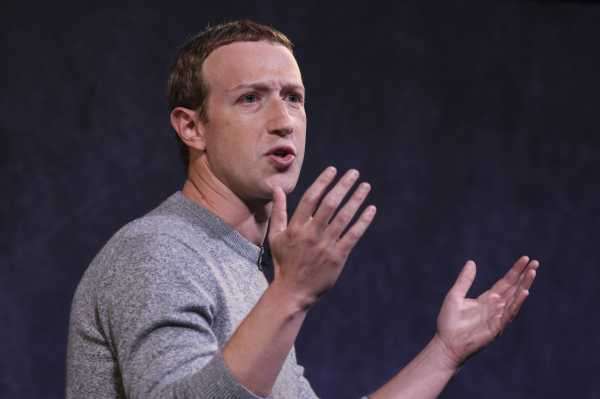
This story is part of a group of stories called

Uncovering and explaining how our digital world is changing — and changing us.
What does the man who singlehandedly controls the world’s most important tech platform think about that platform’s role in the world?
He thinks it’s making the world a better place. Even if it causes some damage — mostly to people and institutions that are threatened by its rise.
The first part, of course, is what you would expect the CEO of Facebook to say in public. But the second part, which Mark Zuckerberg also said today in an interview where he rolled out plans to build a set of audio tools, is a sort of new and important idea.
Sort of, because it’s what Zuckerberg and many of his employees — and, in fact, lots of Silicon Valley folks — have thought and said to each other for a long time: That the stuff they were making was a benefit for society, even if it also created serious problems along the way. That if you weighed it all out, they were doing more good than bad.
“De facto good,” as Facebook exec Andrew Bosworth put it in a memo to his coworkers in June 2016.
But Zuckerberg and crew haven’t talked like that in public for a long time — specifically, since Donald Trump’s election in 2016, followed by a series of damning and embarrassing scandals and
Since then, they’ve been in a defensive crouch, allowing — over and over — that they have a lot of responsibility and a lot of work to do. And, not coincidentally, telling government regulators around the world that they look forward to more regulation so they could be even more responsible.
That public posture makes plenty of sense in a world where Facebook (along with other big tech companies) faces increased scrutiny from lawmakers, and where its users who once celebrated Facebook now often resent Facebook.
But even though many of his top lieutenants have left in recent years, and even though his rank-and-file employees often question whether they’re harming the world, it would be weird if the guy who built Facebook and very much still runs Facebook thought Facebook was Fundamentally Bad.
Zuckerberg doesn’t think that. And today we got to hear him make his case for Facebook out loud, in an interview with tech journalist (and Vox Media contributor) Casey Newton.
Specifically, Zuckerberg argued, Facebook, and tech like Facebook, is good because while it can undermine the old, it helps people — individual people, as opposed to Big Faceless Authorities — create the new. And, crucially, that a lot of people complaining about Facebook and tech like Facebook are afraid of losing power.
It’s a way of thinking about the world that used to be common, and praised, in Silicon Valley and among technologists. It’s a mindset that melds the Whole Earth Catalog with The Fountainhead and a healthy dose of creative destruction.
We have heard a lot less of that lately as the world reckons with some of the unintended consequences Silicon Valley has brought us in the last couple decades — like giant platforms that can quickly and effectively mislead huge swaths of the population about objective reality. But Zuckerberg, it’s clear, is still a believer.
Here’s the transcript of this part of the exchange between Zuckerberg and Newton:
Zuckerberg is at least partially correct — there are lots of upsides to technology. And Facebook provides lots of value to me, and presumably to most of the 2.8 billion people who use it worldwide. I also believe he believes that he’s helping people make choices about what they want to do and how they want to do it.
The problem is that Facebook, Inc. isn’t just a tool that individuals can use. It’s a mammoth network, run largely without any oversight at all from the world’s citizens and governments. And even if you never use it, it can be enormously consequential. See, for instance, the evolution of the “stop the steal” movement from Facebook-enabled chat groups to a force behind the Capitol riot.
My hunch is that this won’t be the last time we hear Zuckerberg play up the notion that Facebook stands for individual liberty and choice. For one thing, Zuckerberg doesn’t do a lot of improv in public settings, and this isn’t the kind of messaging he just blurts out. More to the point: When you’re facing public pressure to shrink yourself, somehow, because you’re Too Big and Too Unaccountable, telling the world that you’re simply helping people make their own choices may seem like a good retort. Especially if you believe it.
If you value Vox, we have an ask
To understand the news, you have to understand the systems that shape society. Our reporters and editors spend hours finding data, doing research, and talking to experts to clearly explain these systems, including historical context, problems, and potential solutions. Our aim is to give people clear information that empowers them to shape the world in which they live. Please consider making a contribution to Vox today, from as little as $3, to help us keep our work free for all.
Sourse: vox.com





